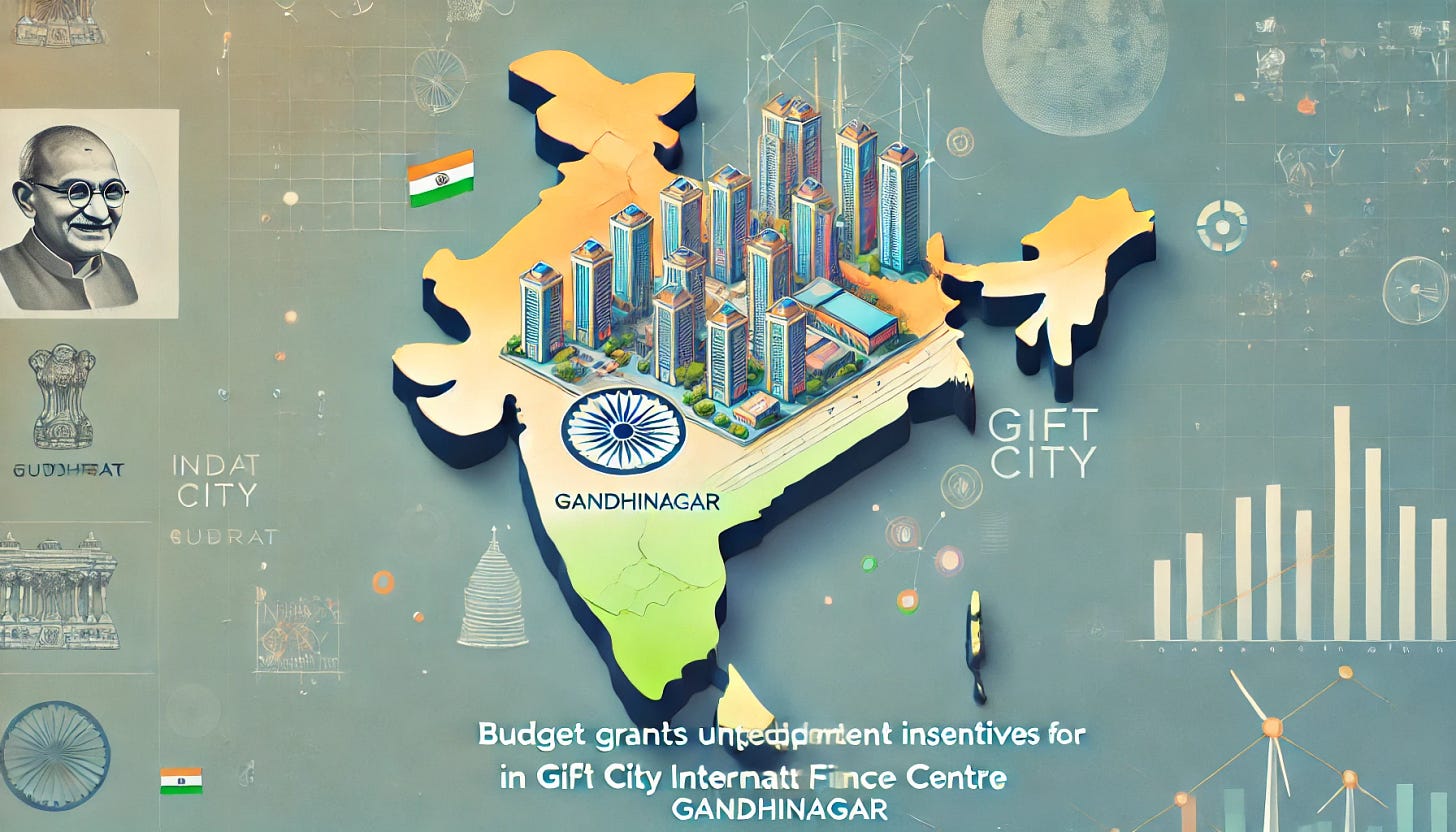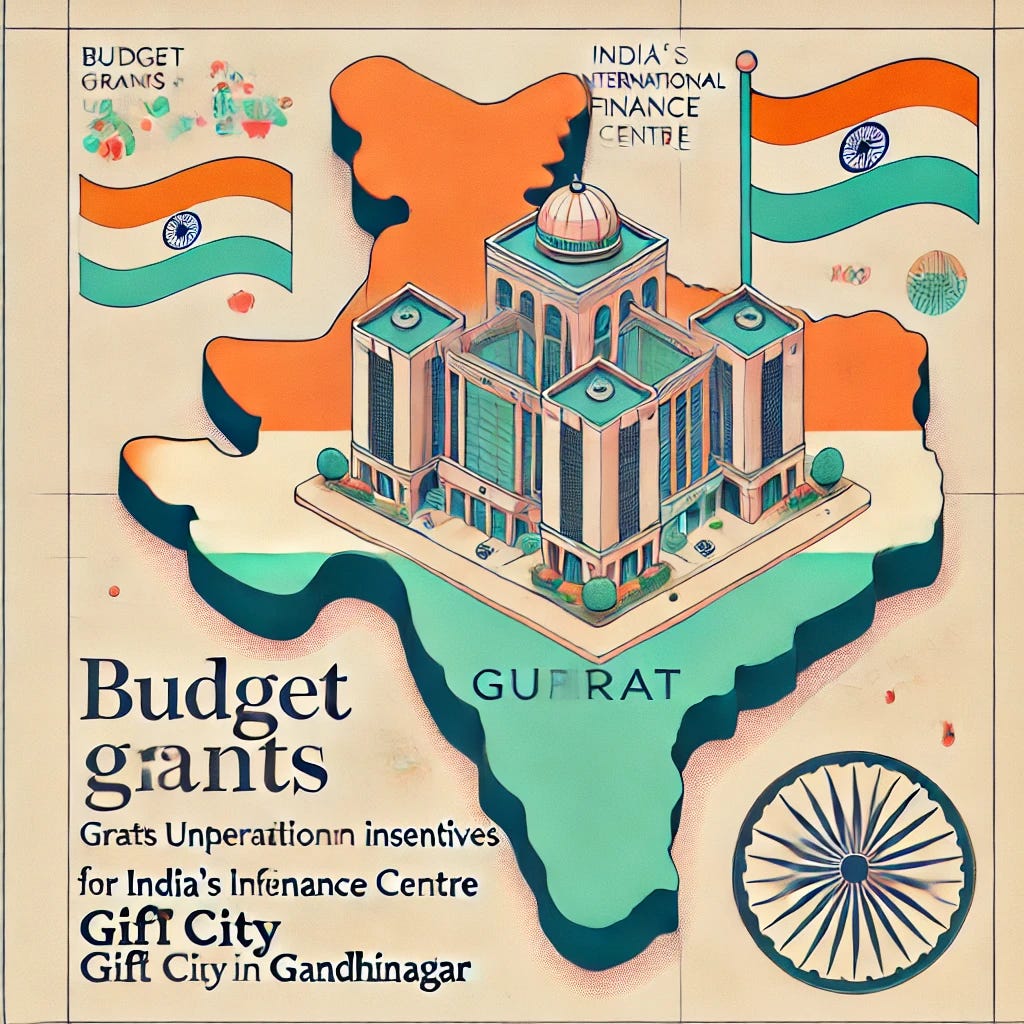Introduction: A Strategic Focus on Financial Services
The recent Union Budget announcements, as highlighted in the Finance Minister's speech on Tuesday, have brought attention to the distinct role of the International Financial Services Centre (IFSC) in Gujarat International Finance Tec-City (GIFT City), Gandhinagar. As the sole IFSC in India, GIFT City has been granted an array of incentives designed to develop it into a major global financial hub. A brief mention in paragraph 160 of the speech, stating “Expansion of tax benefits to certain funds and entities in IFSCs,” introduces these changes succinctly. However, a detailed account on pages 50-51 elaborates on these tax benefits, emphasizing a conscious and coherent strategy to boost India's position in the global financial services market.
The Role and Benefits of IFSCs
IFSCs are specialised zones that cater to customers outside the domestic economy, providing financial products and services across borders. These centres are pivotal for attracting foreign investment and reducing transaction costs, often operating in currencies other than the domestic currency to facilitate global trade. Globally, cities like London and Singapore have established themselves as benchmarks in financial services, offering lessons on the potential economic impact of successful IFSCs.
GIFT City: Pioneering India's Global Financial Ambitions
GIFT City, operational since 2015, stands as a testament to India's ambitions in the global financial market. The centre offers a robust regulatory and business environment, comparable with other leading global financial hubs. It serves as a critical gateway for attracting overseas investors and companies by providing sophisticated infrastructure and regulatory ease that are conducive to financial operations.
Enhanced Tax Benefits and Regulatory Reforms
The tax incentives provided to entities within GIFT City are substantial. Firms operating in this IFSC enjoy a 10-year tax holiday, which includes a 100% exemption on direct taxes for a decade within a 15-year frame. The latest Union Budget further sweetened the deal by extending various deadlines for tax exemptions and introducing new tax reliefs, specifically tailored to bolster activities like aircraft and ship leasing, and fund management services within IFSCs.
Enhanced Tax Incentives for IFSCs: Catalyzing Growth Across Sectors
a.) Broadening Financial Horizons
The latest legislative amendments have introduced significant tax incentives for entities within International Financial Services Centres (IFSCs), particularly impacting retail schemes and Exchange Traded Funds (ETFs). These financial instruments are now aligned with specified funds in terms of enjoying similar tax exemptions, a move that not only simplifies the investment landscape but also enhances its attractiveness to global investors. Additionally, the income of Core Settlement Guarantee Funds, vital for ensuring the stability and integrity of financial settlements, is now exempt from tax, reinforcing the financial infrastructure. Notably, the exemption from Section 94B for certain finance companies facilitates greater financial leverage by permitting higher deductible interest. Furthermore, Venture Capital Funds (VCFs) operating within IFSCs are granted more operational freedom, as they are no longer required to disclose the source of funds when extending loans. This simplification is coupled with the abolition of surcharges on income from securities for specified funds, significantly lowering the tax burden and incentivizing investment activities.
b.) Fostering Diverse Business Activities
The reduction in the income tax rate from 40% to 35% for foreign companies, excluding those already subjected to special rates, is a strategic enhancement that bolsters India's competitiveness in attracting global businesses to IFSCs. This tax relief broadens the appeal of IFSCs as a locus for multinational operations, particularly beneficial for companies considering relocation or expansion of their financial services to India. Additionally, the abolition of tax on share premiums for private companies from FY 2024-25— the scraping of the so-called “angel tax”— removes a significant barrier to capital raising for emerging companies, facilitating easier access to necessary funding for growth and development. The introduction of a presumptive taxation regime for non-resident-operated cruise ship operations further diversifies the scope of business activities within IFSCs. This regime, along with the exemption on lease rental income from related foreign companies, underscores a forward-thinking approach to developing niche sectors such as maritime tourism, aligning them with broader financial services expansion.
Equitable Development: A Model for National Prosperity
GIFT City's success, driven by significant tax incentives and regulatory support, exemplifies a model that could be replicated across major Indian cities to enhance the national financial landscape. While GIFT City thrives, the pressing need to establish more International Financial Services Centres (IFSCs) in other regions is evident. This expansion would decentralize economic growth and promote equitable development throughout the country, offering multiple states the same opportunities currently concentrated in Gujarat. Such a strategy ensures that the benefits of GIFT City are shared more broadly, fostering balanced economic upliftment and spurring innovation in financial services nationwide. Ultimately, this approach would not only strengthen India's financial infrastructure but also solidify its stance as a formidable player on the global stage, ensuring that growth in the financial sector remains inclusive and sustainable.
In Summary: Navigating Fiscal Policy for National Prosperity
These comprehensive tax reforms across various facets of financial and business operations within IFSCs underscore a robust governmental commitment to transform these zones into thriving, globally competitive financial hubs. The strategic expansion of incentives not only bolsters GIFT City's prominence but also promises significant benefits for future IFSCs across India. While the incentives for Gujarat's GIFT City have been a prominent feature of the budget proposals, this initiative cannot be viewed in isolation.
Ammunition for Opposition
States like Andhra Pradesh and Bihar, on account of their alignment with the NDA, have also secured substantial capital grants, although they may not have received "special status." This situation— clubbed with the GIFT City bonanza— is likely to prompt vocal criticism from opposition parties, who may otherwise struggle to find substantive faults with the policy on its merits.
Overall an Ambitious and Progressive Budget
However, the overall fiscal strategy is progressive and proactive. Measures such as the elimination of the contentious "angel tax," a reduction in Long-Term Capital Gains tax from 20% to 12.5%, and reductions in personal income tax are set to energize a diverse group of stakeholders. These initiatives are designed to promote a robust, sustainable, and equitable growth trajectory for India's economy, despite any opposition. The government's approach indicates a clear path forward, focusing on long-term economic health and inclusivity.
Citations
For more about the advantages and regulatory environment of IFSCs, including GIFT City, visit IFSCA's official site and Business Standard's coverage on recent budget benefits for IFSC.







Present government is off the people, far the people and buy the people . ਗਰੀਬਾਂ ਦੇ ਧਨ ਨਾਲ ਐਸ਼ ਵੀ ਕਰੋ ਤੇ ਕੁਰਸੀ ਵੀ ਪੱਕੀ ਕਰੋ ।
ਕਮਾਏਗਾ ਜਮਾਨਾਂ ਜਾਏਂਗੇ ਹਮ